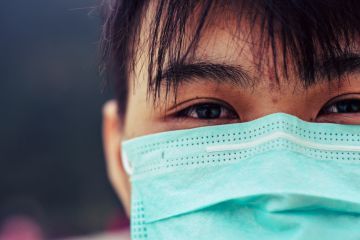Solidarity must prevail - stigmatisation and discrimination of health workers has no place in our society
This blog was written by Margot De Vuyst (Unia Legal officer) & Jone Elizondo-Urrestarazu (Equinet Legal and Policy officer) and published on 7 april 2020 on the Equinet website.
A new and scary discrimination trend seems to be arising in Europe – and worldwide – fuelled by fear of contracting COVID-19 against those that are in the frontline of action. The daily lives of nurses, doctors and health care workers is increasingly being affected by discriminatory attitudes and harassment. On the World Health Day, we wonder, is existing antidiscrimination law prepared to deal with these cases?
Several Equinet members have called attention to discrimination against people suffering COVID-19 or those perceived to possibly being infected, especially health professionals.
Unia reported cases in Belgium of carers who are asked not to park their car in the neighbourhood and nurses who are required to wear gloves or clean the building when entering. Other caregivers who are encouraged to move as quickly as possible or even evicted from their homes. Unia has documented numerous cases of caregivers being stigmatized or even harassed by their neighbours and roommates.
In France, the Prime Minister, Edouard Philippe, denounced discriminatory practices towards healthcare workers. In Bretagne, a nurse claimed to have been evicted from her house because of her job. In Bayonne, a nurse arrived to her home after rendering her services to care and cure COVID-19 patients just to find a letter in her door asking her to park her car away from the neighbourhood, not to touch anything when she entered and asking her to move as soon as possible not to put other tenants in danger.
Equality bodies in some countries received complaints from health professionals because due to the pressure on the healthcare system, their parental rights are being violated and offended, for instance regarding breastfeeding leave, flexible hours and part-time work. While the Commissioner for the Protection of Equality of Serbia issued a public statement to citizens warning against intolerance towards people with COVID-19 (and by extension to those perceived as having it).
Claims of this kind of discrimination also come from overseas, showing that these attitudes should indeed be a main concern (e.g. Philippines, Argentina, Mexico, Japan).
The mandates of our members vary, as do the grounds of discrimination protected under national law. In fact, EU equal treatment Directives do not cover the issue of discrimination based on health status. In some Member States, the transposition of these directives has been extensive, introducing legislation to either cover health status explicitly (by mentioning health status as a discrimination ground in the law) or implicitly (by having an open-ended list of grounds). This shows the importance of not translating the Directives to national law in a minimalistic fashion. The EU’s Charter of Fundamental Rights offers a useful model in this regard. While it does not explicitly list health status among discrimination grounds, it has an open list of grounds and can therefore cover health status as well.
These negative behaviours stand in contrast with the support and encouragement from the wider society. We witness individual initiatives to buy health professionals food, donate protection gear that was used in different factories or laboratories or by different demonstrations in social media, with the widely publicised 20.00 applause or other initiatives. Retired health care workers have joined forces with those in active service to take care of COVID-19 and other patients, as have hundreds of volunteers. They are now on the front line in the fight against coronavirus and therefore need our support. Even if not strictly in their legal mandate, which is ultimately dependent on national law; equality bodies, as equality watchdogs, should feel free and be allowed a role voicing their equality concerns beyond their strict mandate, relying on their duty to promote an equal and fair society.
As Patrick Charlier, director of UNIA and board member of Equinet insisted, “These behaviours have no place in a society where solidarity must prevail. We are aware that we are going through a very exceptional period and that everyone is trying to protect themselves as best as possible against this virus. Stigmatization and segregation of health care workers have no place in our society. Let us not fall into this trap“.
Comparable articles
Court describes effects of cancer as disability for the first time
An employer should have made adaptations to enable a woman who was unable to work for a long time due to cancer to continue doing her job, according to a ruling by the Brussels Labour Court. This is the first time that a court has recognised the lasting effects of cancer as a disability. The judge ordered the employer to pay 12,500 euros in compensation to the employee for discrimination. Unia acted as intervener in the case.
What is the Achbita case?
In 2006, S. Achbita was fired when she started wearing a headscarf at work. The case came before the Labour Court of Antwerp (2009), the Court of Cassation (2015), the Court of Justice of the European Union (2017) and the Labour Court of Ghent (2020). Below you can find a full chronology.
More employment discrimination cases reported to Unia in 2017
Last year Unia opened a total of 2,017 cases of situations where people felt they were the subject of discrimination. This represents a 6% increase over 2016 (1,907 cases). Instances of employment discrimination were the most frequently opened cases at Unia.
Unia reacts to the report on discrimination by the Fundamental Rights Agency (FRA)
Out of all survey-respondents of North African and Turkish origin who experienced discrimination in the past year in Belgium, 20% said it had occurred on the job market, while the European average on this point is 12%. This figure was brought to Unia’s attention in the Second EU-MIDIS report by the European Union Agency for Fundamental Rights (FRA).

